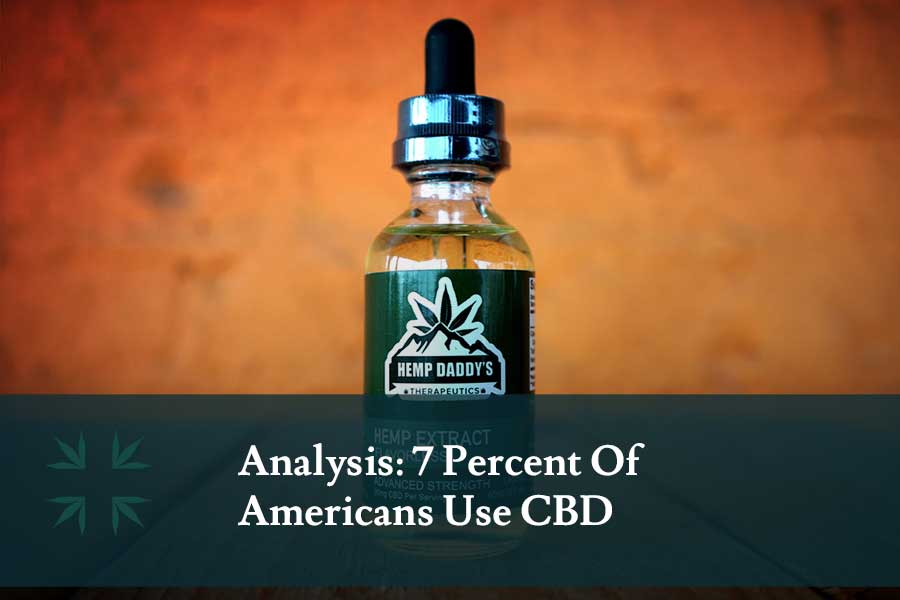Nearly 7 percent of Americans currently use hemp-derived cannabidiol (CBD) products in the United States and that figure is expected to increase to 10 percent by 2025, according to a recent report.
The new analysis by Cowen & Co., a New York-based financial services firm, is based on the results of a consumer survey of around 2,500 adults carried out in January.
Cowen & Co. analyst Vivien Azer and her colleagues were surprised to find that 6.9 percent of respondents use CBD as a supplement, considerably more than the 4.2 percent who reported using e-cigarettes.
“This initial response piqued our interest considerably, as it was much higher than we would have suspected,” said Azer.
The survey also revealed that CBD use is currently highest among adults aged between 18 and 34 years. CBD tinctures, or liquid CBD oil-infused extracts, are the most popular CBD product, accounting for 44 percent of the market. The next most commonly-used CBD product are CBD topicals, which make up 26 percent of sales, followed by CBD capsules (22 percent) and CBD beverages (9 percent).
CBD’s growing popularity has led Cowen & Co. to “conservatively” forecast that the CBD market will have around 25 million consumers in the U.S. and be worth around $16 billion by 2025. While impressive, it is a considerably lower projection than the $22 billion by 2022 figure offered by the cannabis market research firm Brightfield Group last year.
The boon in CBD use has been partly driven by the signing into law of the Farm Bill at the end of 2018, which ended any legal uncertainty surrounding hemp-derived CBD products.
As a result of the Farm Bill, hemp-derived CBD oil is now available throughout the U.S. without a doctor’s prescription or recommendation.
CBD’s growing popularity as a daily supplement reflects its effectiveness at naturally encouraging health and wellness by supporting the body’s major self-regulatory network, the endocannabinoid system.
More than 40 countries around the world now permit hemp-derived products containing CBD so the growing market for CBD products is not just limited to the U.S..

Leave A Comment